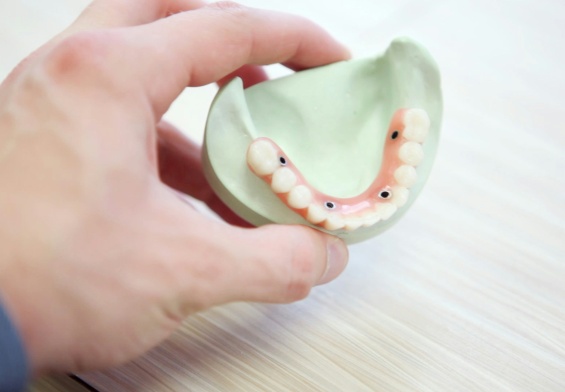When considering a visit to the dentist, cavities are one of the top reasons people schedule an appointment. Studies have shown that cavities impact as much as 90 percent of the population. Sometimes they are small and go unnoticed, other times they are a large enough to collect food and become quite painful, often sending the patient straight to the dentist’s chair. In fact, toothaches caused by cavities are one of the single most common reasons for a trip to the dentist. Cavities are even more problematic for children who are much more vulnerable to them than adults. This is because young teeth haven’t matured fully yet and are more likely to be exposed to unhealthy, sugary treats more often. As such, be sure to check with a family dentist to receive quality care for the entire family. Here is a general rundown of how cavities form and how families can avoid them altogether. If you have a toothache or think that you may have a cavity you should contact a family dentist near you for help.
Where Cavities Come From
While this may sound unpleasant, a person’s mouth is a breeding ground for bacteria. This is because there are many chemical processes going on that help in breaking down food and their particles. Unfortunately, oral bacteria feed on debris left over from meals. Specifically, they feed off of remnants that are heavy in carbohydrates which have become lodged in and between the teeth.
Once the bacteria have gotten the fuel they need to reproduce, the bacteria will start converting this fuel into acidic plaque. Acidic plaque damages the teeth so much that it starts eating through the tooth’s enamel, creating a cavity. As the bacteria continues to feed, the cavity will keep growing and growing.
If the cavity spreads far enough, it can cause lasting damage to the pulp of the tooth. Pulp is an important part of the inner workings of a tooth, protecting the tooth’s blood vessels and nerves. Damage to the pulp and the roots of the teeth is what often leads to root canals as the bacteria work their way into sensitive nerve areas.
By the time a cavity is formed, there is nothing that can be done to reverse it except to visit a dentist for a filling, or a crown if the damage is extensive enough.
Cavities in Adulthood
Both adults and children can develop cavities. While adult teeth are stronger than a child’s, it is still entirely possible for cavities to form in adult teeth in absence of the proper oral care and hygiene required to prevent them. As adults age, their teeth spread out across the gums, exposing more teeth to dangerous plaque and in turn, cavities. Older adults sometimes develop cavities around the edges of their existing fillings. For older adults who did not receive the proper nutrition growing up and who had childhood cavities, it is very likely that cavities may reappear. Additionally, genetics can play a huge role in cavity susceptibility, making some people more likely to develop a cavity sometime throughout their lifetime.
What Can Be Done About Cavities?
A patient does not have to live with a troublesome cavity. Here are a few ways to prevent and treat them:
- Brush and floss the teeth on a regular basis. This solution includes brushing at least twice per day after meals, and at minimum flossing at least once per day. Use a fluoride infused toothpaste and a soft to medium bristled toothbrush for the best oral care and hygiene results.
- Eat more self-cleaning foods. There are certain foods which can help to clean the teeth naturally. These include apples, celery, and carrots, just to name a few.
- See a nutritionist for additional dietary advice. A nutritionist may recommend eating less sugary foods and carbohydrates. Such foods play a key role in cavity formation and avoiding them can create a healthier oral environment.
- Check the family’s medical history. If there is a history of cavities, then the likelihood of developing them could substantially increase.
Remember, once a cavity has formed the next step is to schedule an appointment with a dentist immediately. This problematic dental condition can largely be avoided by taking the right approach to routine dental care. While cavities are a problem for almost everyone, they can be remedied. For patients and their family members who have developed cavities, check with a top dentist near you who can consult on the best care for the cavity. While fillings are the most common solution, the dentist may also share helpful tips and advice on future cavity prevention for the best oral health possible.



